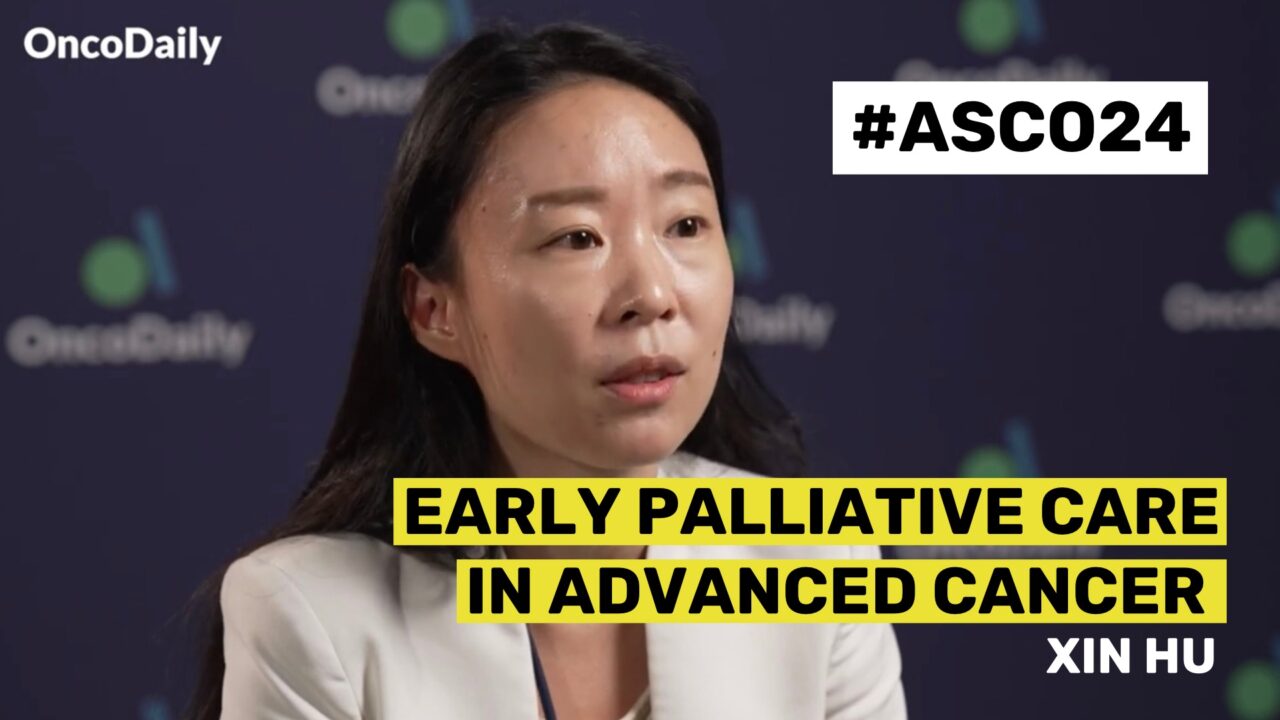The American Society of Clinical Oncology (ASCO) Annual Meeting is one of the largest and most prestigious conferences in the field of oncology. This year, the meeting took place from May 31 to June 4 in Chicago, Illinois. The event gathers oncologists, researchers, and healthcare professionals from around the world to discuss the latest advancements in cancer research, treatment, and patient care. Keynote sessions, research presentations, and panel discussions are typically part of the agenda, providing attendees with valuable insights into emerging trends and innovations in oncology.
This year, OncoDaily was at ASCO 2024 for the first time covering the meeting on-site. We had the pleasure of interviewing researchers who summarized the highlights of their work.
In this video, Dr. Xin Hu from the University of Virginia, shares insights on ‘Moderating effects of organizational minority representation on racial and ethnic differences in early palliative care receipt among patients diagnosed with advanced cancers in 2010-2019 in the US.‘
Hi, my name is Xin Hu, and I’m an assistant professor from the Department of Public Health Science, University of Virginia. So we conducted a study looking at the early palliative care use among patients with advanced cancer in the U.S. from 2010 to 2020, and also we looked at how providers contribute to the variation of early palliative care use. So in the U.S., we have known that early integration of early palliative care has significant clinical benefits for patients in terms of improved quality of life and survival, and studies have shown that patients’ clinical characteristics and demographic characteristics are associated with early palliative care use.
But what is less known is the population-based study of the trend of early palliative care use and the provider contribution to this service use. So we used the data called the SEER Medicare Data Linkage, which is a population-based cancer registry linked with the Medicare claims data. So we extracted a retrospective cohort of patients with advanced metastatic breast cancer, colorectal cancer, prostate cancer, non-small cell lung cancer, small cell lung cancer, and prostate cancer, and examined the descriptive trend of any early palliative care use.
We also used multivariable linear probability model and a physician fixed effect and organizational fixed effect to look at how much of this variation in early palliative care is attributable to the provider and the organization. And lastly, using the data, we examined association between some of the observable provider characteristics and early palliative care use. What we found was that from 2010 to 2019, the overall utilization of early palliative care increased from just below 2% to over 10%, which is very encouraging.
And this utilization is relatively lower among patients with relatively better prognosis, such as prostate cancer, but higher among people with poorer prognosis, such as those with pancreatic cancers. And we also found that about 48% of the variation in palliative care use is driven by the provider. And among specific provider characteristics, those patients who are treated by physicians who are younger, who are female, and who had any palliative care referral in the past year, as well as those who are practicing under organizations that also employ hospice and palliative care medicine specialists, were significantly more likely to receive early palliative care.
So these findings suggest that intervention to increase the palliative care workforce and also education for providers to increase awareness of palliative care may be effective tools to promote early palliative care use.
More videos and content from ASCO 2024 on OncoDaily.


